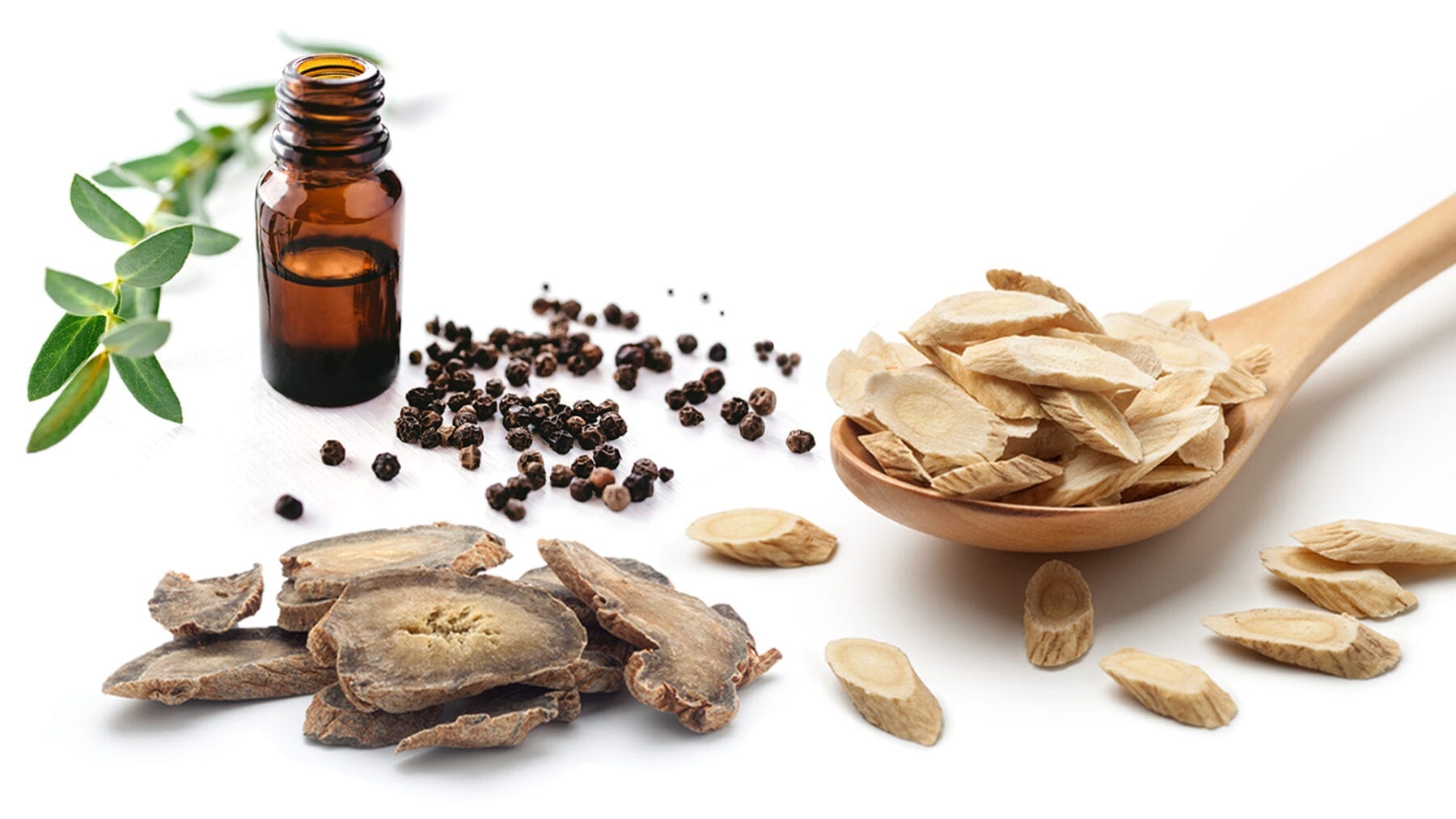
Written by Dr. Rao Adeel
Doctor of Medicine (MD)
May 6, 2021
CATEGORIES
View All
BioWOW Foods® Safety/Quality
Full-Body Workouts
Healthy Eating
Joint Health
Self-Care Strategies
Supplements Guide
Featured Videos
What is Menopause?
Menopause is a natural process, marking the drop in estrogen hormone production and cessation of menstrual cycles in women.
Most of the women going through this phase experience several uncomfortable symptoms, most commonly being the infamous hot flashes, vaginal problems, chills and sweats, and mood instabilities. Moreover, menopause puts women at risk of deterioration of bone health as well.
Here, we describe some of the useful dietary supplements that you can use to alleviate menopausal symptoms and maintain good health:
1.) Flax Seeds:
Also known as linseed, these little guys are rich in healthy omega-3 fats and boost your estrogen levels. Flax seeds contain lignans, which are compounds similar to estrogen, and they are shown to exert multiple health benefits. Adding flax seeds to your daily diet will not only help with menopausal symptoms like hot flashes but also will take care of your bone health.
2.) Ginseng:
One of the most popular herbal supplements, Ginseng helps improve your immunity, energy, and cardiovascular health. Not only that, but it has also been shown to be beneficial for menopausal symptoms as it enhances mood and sleep quality.
3.) Magnesium:
Magnesium will be your wonder mineral. From improving bone and heart health to improving sleep quality and helping with mood disorders, there is scientific evidence available that supports magnesium’s role in these processes.
4.) Black Cohosh:
Made from the root of the black cohosh plant, it is one of the most widely studied herbs for the treatment of menopausal symptoms. Black cohosh helps to relieve the intensity and frequency of hot flashes and night sweats.
5.) Calcium and Vitamin D:
Once estrogen levels go down, your bones are at risk. Calcium and Vitamin D will complement each other to build up your skeletal strength and prevent bone loss.
6.) Keratin and Biotin:
A very common complaint of women in menopause is hair thinning, hair loss, and brittle nails. Keratin and biotin supplementation, and even adopting a diet higher in these nutrients can help. Keratin is a protein that makes up our hair, nails, and skin, while biotin is a water-soluble vitamin that is shown to be effective against hair loss.
References:
1.) Abbasi, B., Kimiagar, M., Sadeghniiat, K., Shirazi, M. M., Hedayati, M., & Rashidkhani, B. (2012). The effect of magnesium supplementation on primary insomnia in elderly: A double-blind placebo-controlled clinical trial. Journal of Research in Medical Sciences, 17(12), 1161–1169. /pmc/articles/PMC3703169/
2.) DANIELE, N., CARBONELLI, M., CANDELORO, N., IACOPINO, L., DELORENZO, A., & ANDREOLI, A. (2004). Effect of supplementation of calcium and Vitamin D on bone mineral density and bone mineral content in peri- and post-menopause womenA double-blind, randomized, controlled trial. Pharmacological Research, 50(6), 637–641. https://doi.org/10.1016/j.phrs.2004.05.010
3.) Lee, H. W., Choi, J., Lee, Y. J., Kil, K. J., & Lee, M. S. (2016). Ginseng for managing menopausal woman’s health: A systematic review of double-blind, randomized, placebo-controlled trials. Medicine (United States), 95(38). https://doi.org/10.1097/MD.0000000000004914
4.) Mehrpooya, M., Rabiee, S., Larki-Harchegani, A., Fallahian, A.-M., Moradi, A., Ataei, S., & Javad, M. T. (2018). A comparative study on the effect of “black cohosh” and “evening primrose oil” on menopausal hot flashes. Journal of Education and Health Promotion, 7(1), 36–36. https://doi.org/10.4103/jehp.jehp_81_17
5.) Orchard, T. S., Larson, J. C., Alghothani, N., Bout-Tabaku, S., Cauley, J. A., Chen, Z., LaCroix, A. Z., Wactawski-Wende, J., & Jackson, R. D. (2014). Magnesium intake, bone mineral density, and fractures: Results from the Women’s Health Initiative Observational Study. American Journal of Clinical Nutrition, 99(4), 926–933. https://doi.org/10.3945/ajcn.113.067488
6.) Rodríguez-García, C., Sánchez-Quesada, C., Toledo, E., Delgado-Rodríguez, M., & Gaforio, J. J. (2019). Naturally lignan-rich foods: A dietary tool for health promotion? In Molecules (Vol. 24, Issue 5). MDPI AG. https://doi.org/10.3390/molecules24050917
7.) Zempleni, J., Hassan, Y. I., & Wijeratne, S. S. K. (2008). Biotin and biotinidase deficiency. In Expert Review of Endocrinology and Metabolism (Vol. 3, Issue 6, pp. 715–724). Expert Rev Endocrinol Metab. https://doi.org/10.1586/17446651.3.6.715
6 PERIMENOPAUSE SUPPLEMENTS

Written by Dr. Rao Adeel
Doctor of Medicine (MD)



